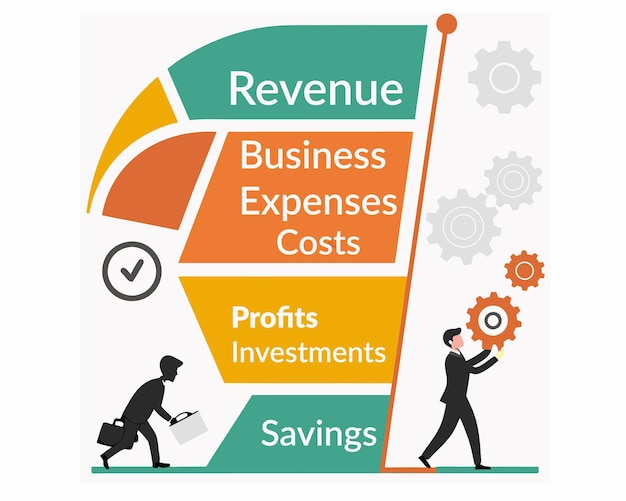New tax law changes in 2025 could significantly impact your investment strategy, primarily through a potential 10% increase in the capital gains tax, necessitating a thorough understanding of its implications for your financial planning and investment decisions in the US.
Are you prepared for the new tax law changes in 2025? A projected 10% increase in the capital gains tax could reshape your investment landscape. Let’s explore how you can navigate these changes.
Understanding the Proposed Capital Gains Tax Increase
The proposed increase in the capital gains tax is a significant aspect of the new tax law changes expected in 2025. This adjustment could alter how investors approach wealth building and portfolio management in the United States.
What are Capital Gains?
Capital gains refer to the profit earned from selling an asset, such as stocks, bonds, real estate, or cryptocurrency, for a higher price than what you originally paid for it. These gains are subject to taxation, with rates varying based on income level and the holding period of the asset.
Current Capital Gains Tax Rates
Currently, the capital gains tax rates in the US depend on your taxable income and the length of time you’ve held the asset. For assets held for more than one year (long-term capital gains), the rates are typically 0%, 15%, or 20%, with an additional 3.8% Net Investment Income Tax (NIIT) applying to some high-income earners.
- Short-term capital gains (assets held for a year or less) are taxed at your ordinary income tax rate.
- Long-term capital gains offer more favorable tax rates compared to ordinary income.
- Understanding these nuances is critical for effective tax planning.
In summary, the existing capital gains tax structure offers different rates based on holding periods and income, influencing investment strategies and tax planning decisions. The proposed increase could significantly change this landscape.

The Impact of a 10% Increase
A 10% increase in the capital gains tax rate would have widespread implications for investors, businesses, and the overall economy. Understanding these effects is crucial for adapting your financial strategies.
For Individual Investors
Individual investors would see a direct impact on their investment returns. Higher capital gains taxes mean a larger portion of profits from selling assets would go to the government, reducing net gains.
For Businesses
Businesses that frequently sell assets, such as real estate or stocks, could face higher tax liabilities. This might lead to adjustments in investment and sales strategies to mitigate the impact.
Potential Behavioral Changes
The tax increase might incentivize investors to hold onto assets longer to defer tax liabilities. It could also lead to increased tax planning efforts, such as exploring tax-advantaged investment accounts.
The 10% increase in capital gains tax could reshape investment decisions, prompting investors and businesses to rethink their strategies to manage the higher tax burden and optimize their financial outcomes.
Strategies to Mitigate the Tax Increase
With the anticipated increase in capital gains tax, implementing effective strategies to minimize its impact is more important than ever. Strategic tax planning can help you protect your investment gains.
Tax-Advantaged Accounts
Utilizing tax-advantaged accounts like 401(k)s, IRAs, and Roth IRAs can help shield your investments from capital gains taxes. Contributions to these accounts may be tax-deductible, and earnings can grow tax-deferred or tax-free.
Tax-Loss Harvesting
Tax-loss harvesting involves selling losing investments to offset capital gains. This strategy can reduce your overall tax liability by using losses to balance out gains.
Qualified Opportunity Zones
Investing in Qualified Opportunity Zones (QOZs) can provide tax benefits, including deferral or elimination of capital gains taxes. QOZs are designated areas with economic development needs, and investments in these zones can offer significant tax advantages.
- Consider consulting with a financial advisor to tailor these strategies to your specific financial situation.
- Regularly review your investment portfolio to identify tax-saving opportunities.
- Stay informed about any changes in tax laws that could affect your investment strategies.
Effective use of tax-advantaged accounts, tax-loss harvesting, and investments in Qualified Opportunity Zones can help mitigate the impact of the capital gains tax increase, preserving more of your investment gains.
Planning for Long-Term Investments
Effective long-term investment planning is critical in light of the potential increase in capital gains taxes. Aligning your investment strategies with your long-term financial goals will help you navigate the changing tax landscape.
Diversification
Diversifying your investment portfolio across different asset classes can help reduce risk and potentially improve returns. A well-diversified portfolio can weather market fluctuations and tax changes more effectively.
Holding Period
Consider the holding period of your investments. Assets held for more than one year qualify for long-term capital gains rates, which are generally lower than short-term rates. Planning to hold investments for the long term can reduce your tax burden.
Estate Planning
Incorporate estate planning into your investment strategy. Proper estate planning can help minimize estate taxes and ensure your assets are distributed according to your wishes. This includes strategies like gifting assets and establishing trusts.

By focusing on diversification, strategic holding periods, and comprehensive estate planning, you can better prepare for the impact of higher capital gains taxes and ensure your long-term investment goals remain within reach.
Expert Opinions on the Tax Law Changes
Gaining insights from financial experts and economists can provide a broader understanding of the potential impacts of the new tax law changes. Their perspectives can help you make informed decisions and adapt your strategies accordingly.
Financial Advisors
Financial advisors emphasize the importance of personalized tax planning. They recommend reviewing your investment portfolio with a tax professional to identify opportunities for tax savings and adjustments to your investment strategy.
Economists
Economists offer insights into the broader economic implications of the tax increase. They analyze its potential effects on investment, savings, and economic growth, providing a macro-level perspective on the changes.
Tax Attorneys
Tax attorneys specialize in navigating complex tax laws and regulations. They can offer guidance on how to comply with the new tax laws and minimize your tax liability through legal and ethical means.
Seeking advice from financial advisors, understanding economic forecasts from economists, and consulting with tax attorneys can provide a well-rounded perspective on the capital gains tax increase, empowering you to make well-informed financial decisions.
Preparing Your Finances for 2025
Taking proactive steps to prepare your finances for the new tax law changes in 2025 is essential. By staying informed and implementing effective strategies, you can navigate the evolving tax landscape with confidence.
Stay Informed
Keep up-to-date with the latest news and developments related to the tax law changes. Follow reputable financial news sources, government announcements, and professional financial advice to stay ahead of the curve.
Review Your Portfolio
Regularly review your investment portfolio to assess its performance and identify any potential tax liabilities. This includes evaluating your asset allocation, investment choices, and overall risk profile.
Consult Professionals
Seek advice from qualified financial professionals, such as financial advisors, tax planners, and estate planning attorneys. Their expertise can help you develop a customized plan to address your specific financial needs and goals.
Preparing your finances for 2025 involves staying informed, regularly reviewing your portfolio, and seeking professional advice. By taking these steps, you can mitigate the impact of the capital gains tax increase and secure your financial future.
| Key Point | Brief Description |
|---|---|
| 💰 Capital Gains Tax Increase | A potential 10% increase in capital gains tax in 2025. |
| 🛡️ Mitigation Strategies | Using tax-advantaged accounts, tax-loss harvesting, and QOZs. |
| 📈 Long-Term Planning | Focus on diversification, holding periods, and estate planning. |
| 💡 Expert Advice | Consult with advisors, economists, and tax attorneys. |
Frequently Asked Questions (FAQ)
▼
Capital gains taxes are levied on the profit from selling assets like stocks or real estate. The rate depends on your income and how long you held the asset, with long-term gains typically taxed lower.
▼
Tax-loss harvesting involves selling investments at a loss to offset capital gains. This reduces your overall tax liability, but it’s crucial to avoid the wash-sale rule, which disallows claiming a loss if you repurchase a similar asset within 30 days.
▼
Qualified Opportunity Zones (QOZs) are designated areas aimed at spurring economic development through tax incentives. Investments in these zones can provide tax benefits, including deferral or even elimination of capital gains taxes.
▼
To prepare, stay informed about tax law changes, review your investment portfolio regularly, and consult with financial professionals. Consider tax-advantaged accounts and adjust your investment strategy to align with your financial goals.
▼
The impact will vary depending on an individual’s income and investment portfolio. Higher-income earners and those with significant capital gains will likely be more affected. It’s essential to assess your specific situation.
Conclusion
Navigating the potential new tax law changes in 2025, particularly the anticipated 10% increase in capital gains tax, requires proactive planning and informed decision-making. By understanding the implications, implementing effective strategies, and seeking professional advice, you can mitigate the impact on your investments and achieve your long-term financial goals.

 Navigating the 2025 Tax Law: A 10% Capital Gains Tax Increase
Navigating the 2025 Tax Law: A 10% Capital Gains Tax Increase  LowRiskInvesting: Strategies for Smart Investors
LowRiskInvesting: Strategies for Smart Investors  Navigating student loans: savvy strategies for debt management
Navigating student loans: savvy strategies for debt management